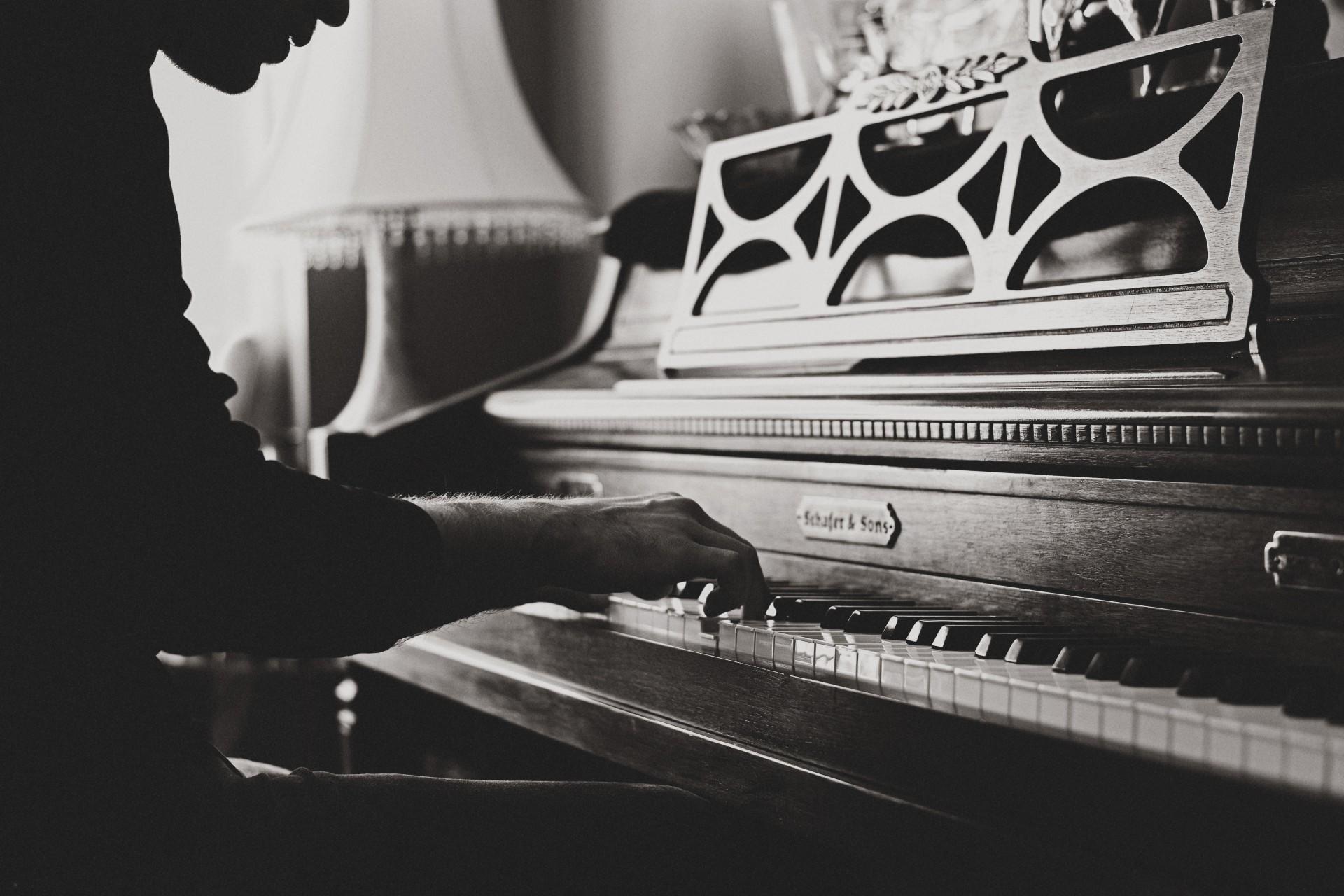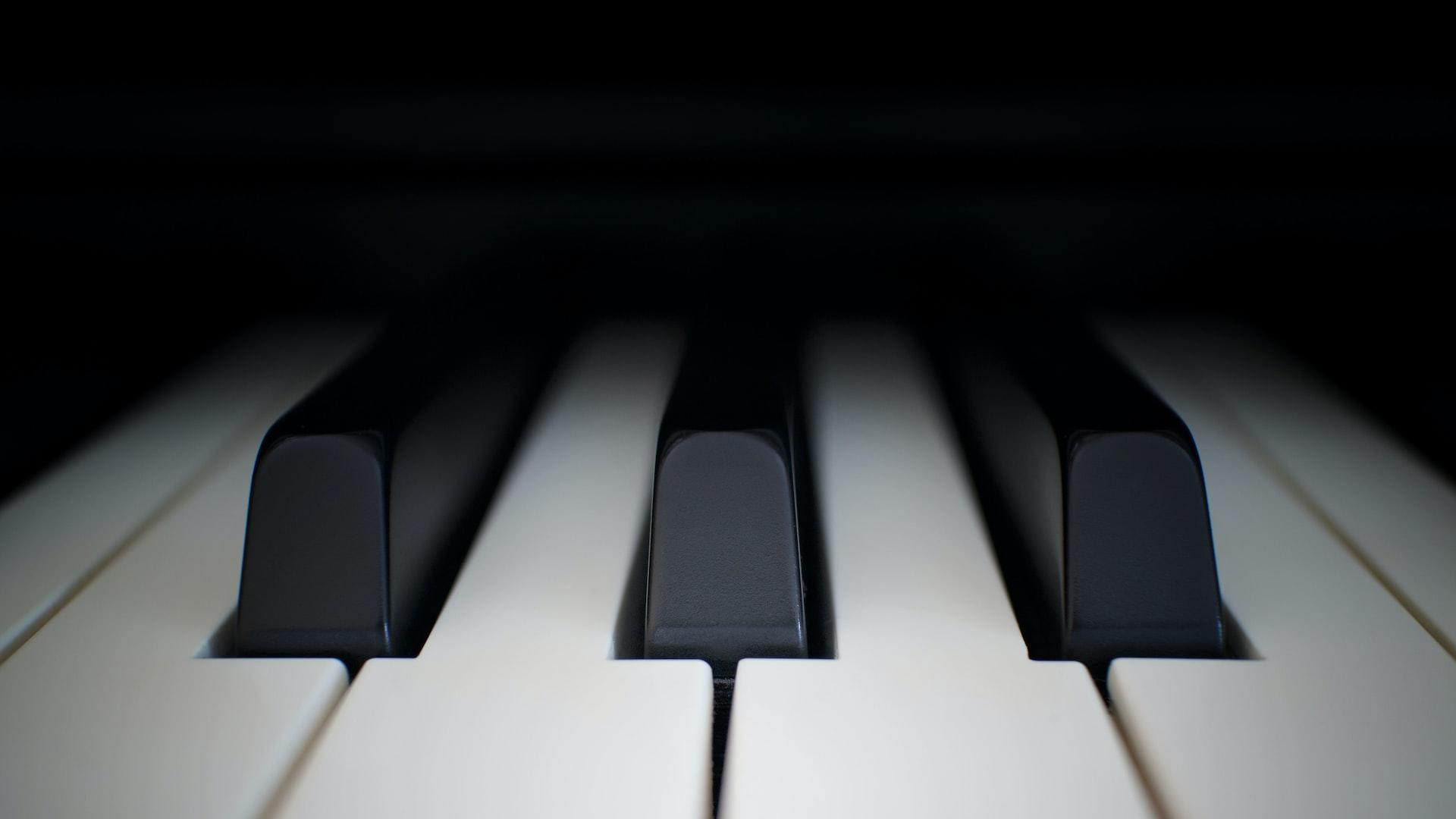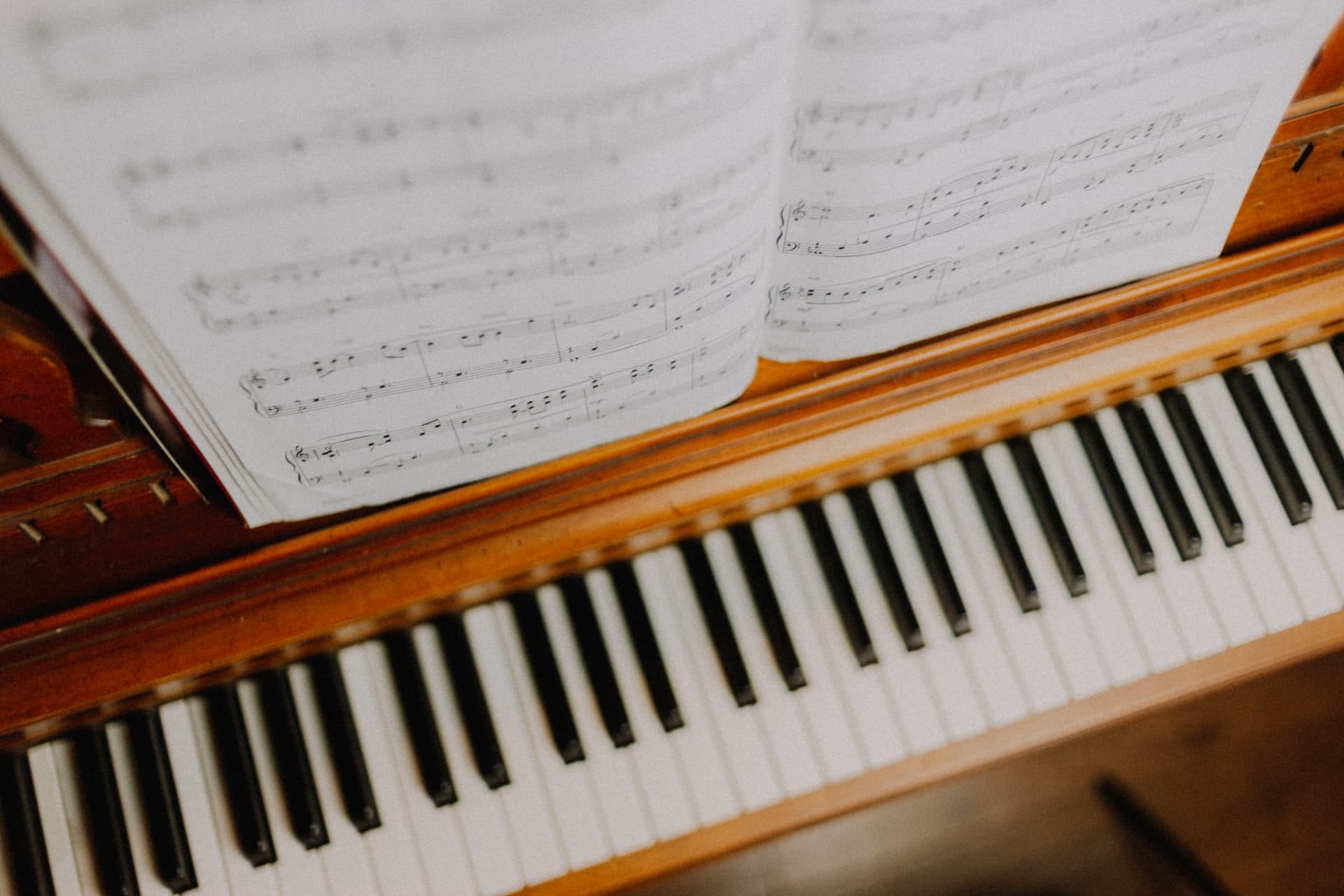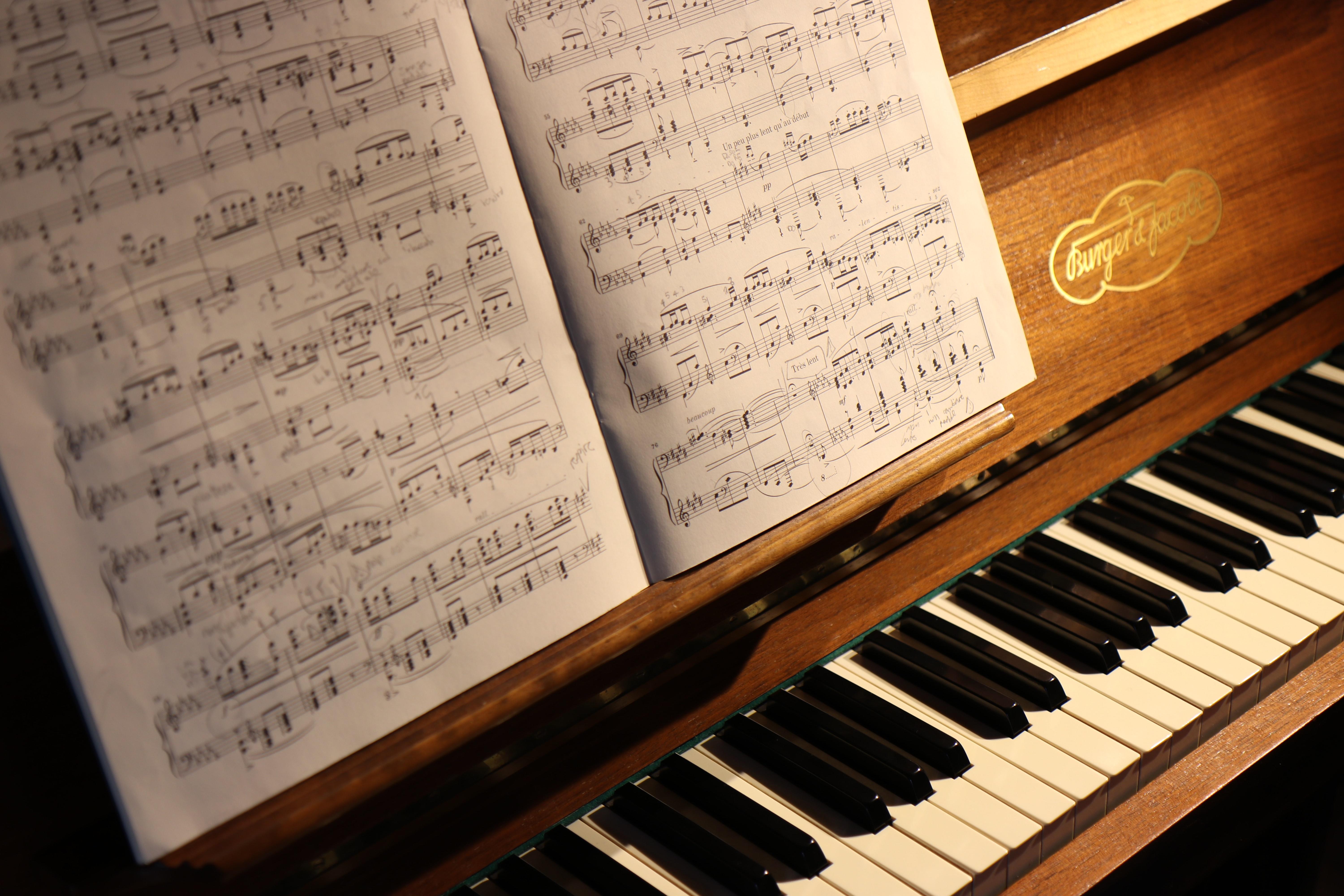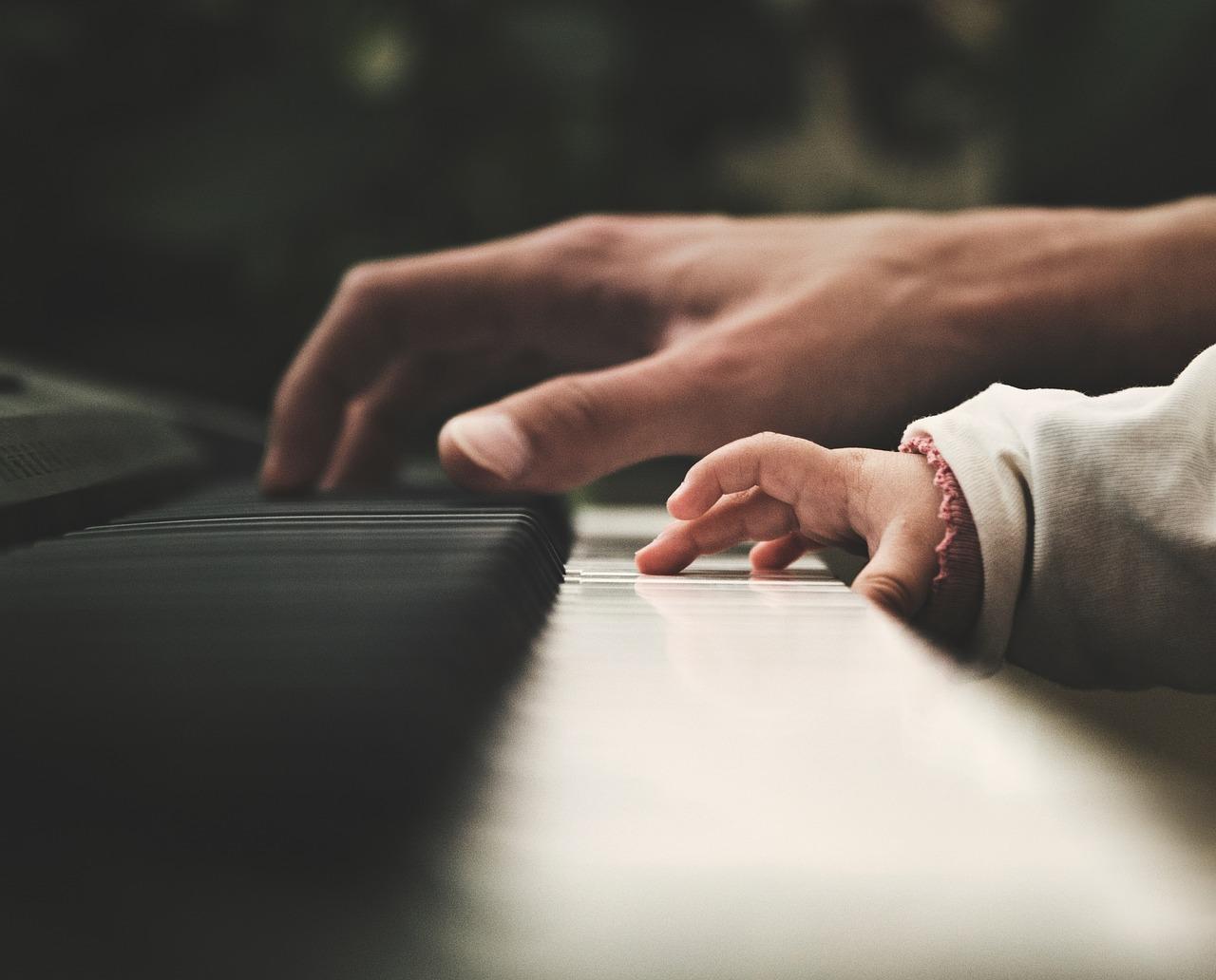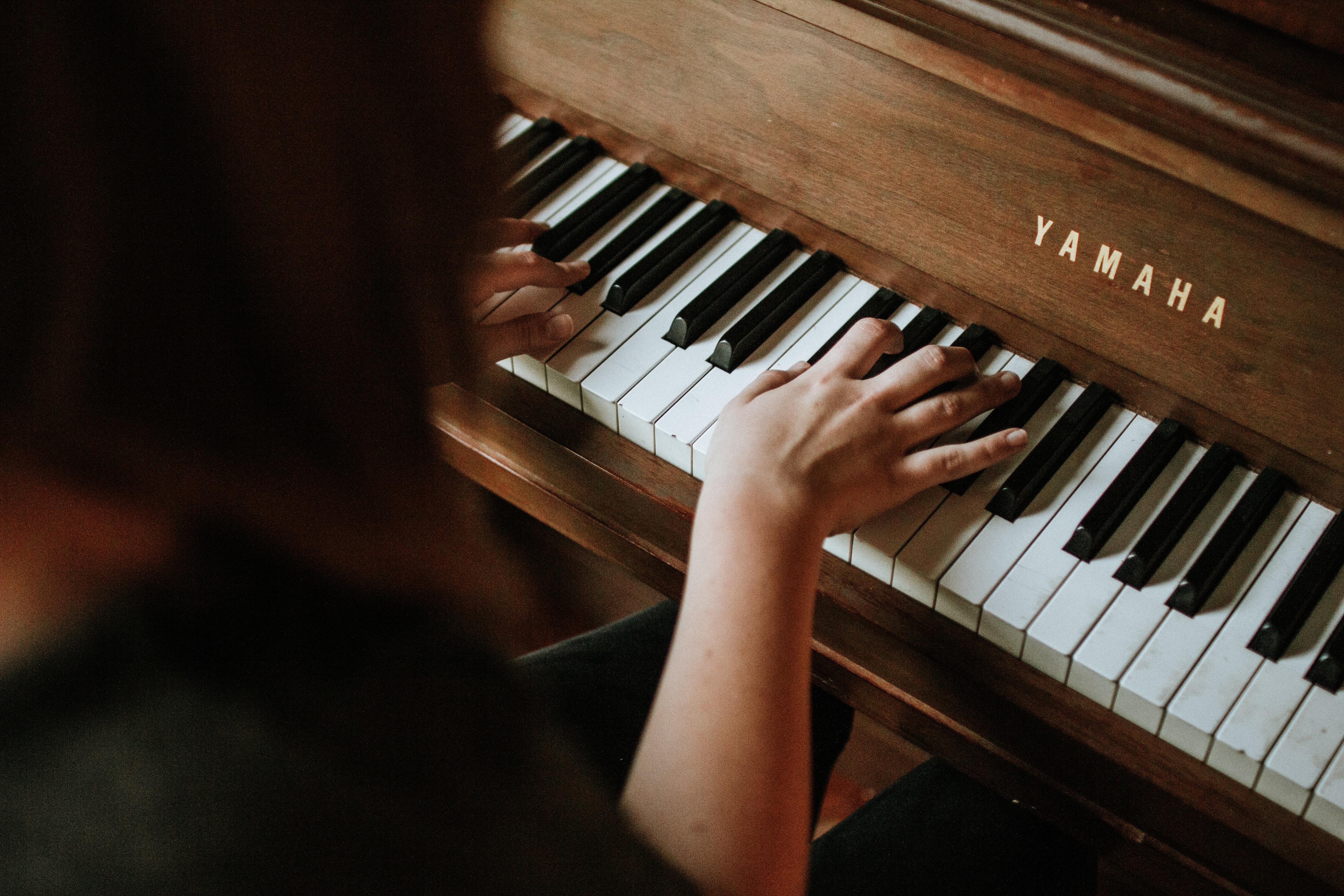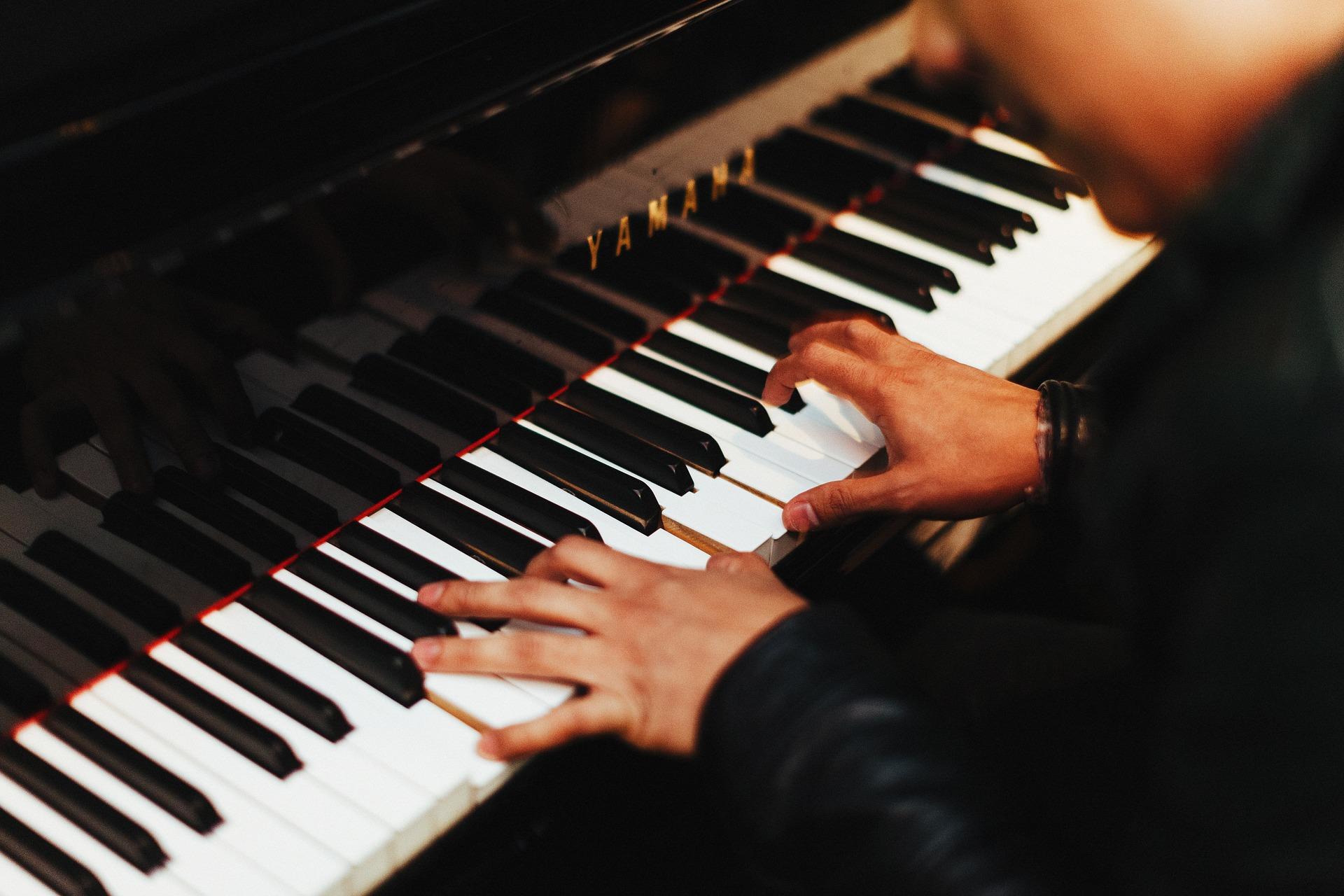Le piano is a universal (and magic) instrument. We say this because the piano is everywhere, and is played and appreciated all over the world. In addition, almost all the songs in the global repertoire of music – no matter the genre, origins or sound – can be transcribed for the piano!
But we have to ask the following question: in today’s digital age of the Internet and music 2.0, can we still adapt all music styles to the piano? Read on and you’ll see that the question is not as simple as you think …

Why can you play (almost) everything on the piano?
As we said above, the piano is a universal instrument. This is one of the reasons that we advise piano for children who want to learn music! “Mary had a little Lamb” anyone?
As they get older and start primary school and high school, the flute becomes more popular.
Then again, it’s much more difficult to transport a piano from your house to your piano lessons! (To avoid carrying your instrument, why not find a private piano teacher or piano course on Superprof to teach you at your home?)
According to specialists, the piano is still the most used instrument as well as the one that'll help you develop all the necessary skills for any music practice! It’s much easier to go on to play a range of instruments once you’ve mastered the piano (and with it music theory, solfege, how to read sheet music, etc).
It’s also the instrument that is optimal both for children’s “musical awakening” and to “refresh” an adult’s taste for music.
Because piano is a bit like the football of music… You fervent rugby fans might not be pleased with this idea, but it is true, alas… Wherever you go and whatever you play, the round ball (not that curved rugby ball!) is central to most sports. This idea of a “universal sport” is also applicable to music.
Find out about the best effective piano lessons in Hobart here.
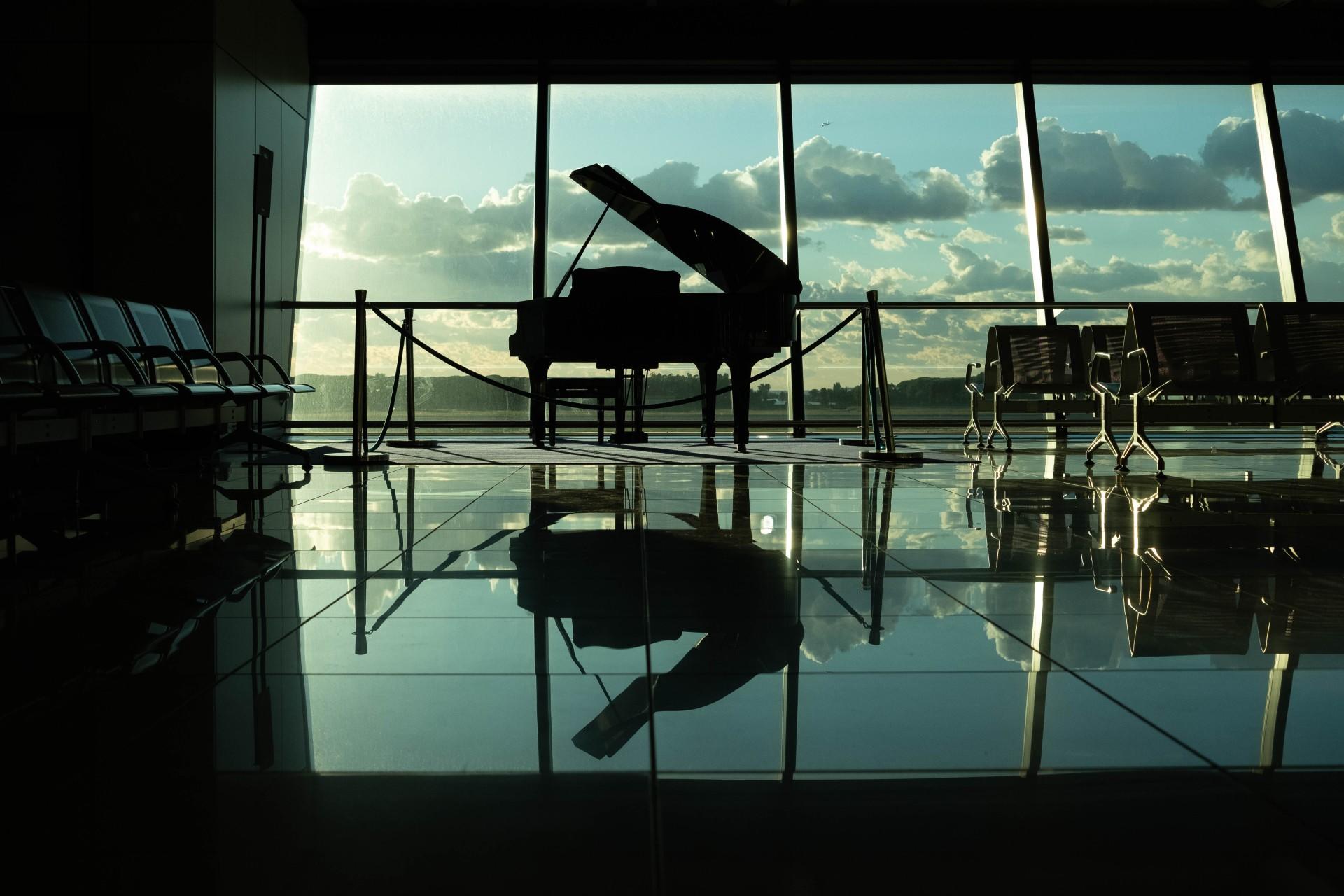
Styles and fads may come and go, but values remain the same. And this is how we’d describe the piano, as a stable value. This is because it’s an instrument that’s accessible to everyone (even small children discovering music with a toy synthesiser). Wherever you are from and wherever you may go, you’ll find pianos, people who are or want to learn to play the piano, and of course, piano virtuosos.
Whether you practice on the piano or synthesiser, those black keys remain a constant, and make ensure that you can play a song on the piano from most music genres. The piano is made for most of your favorite melodies so get to playing piano today!
The piano has its own codes and culture. Within the vast family and world of music, the piano stands out. As such, it’s a bit like the Vatican, separated from the rest of Rome. The history of the piano is marked by richness and a range of varieties and developments.
With time, the piano became an independent musical entity, no longer lost in the orchestral mass like the brass instruments or percussion instruments. (of course, there’s also the harp…) The only instrument with the same attraction and almost mythic popularity is the guitar. In fact, these are the two most used instruments in the world.
You can get more information about some of the best piano teacher in Melbourne here.
What’s more, weren’t most of the greatest music composers pianists to begin with? Revealing tidbit… what are the tunes by your favorite composers?
What makes the piano so versatile?
To understand why the piano is such a universal instrument, it is enough to just think about how it works. When we play the piano, we just need to press keys on the keyboard to read scores. That makes the keyboard much more efficient than many other instruments.
For example, if you play the violin, you'll need to press the strings with one hand and bow with the other. Your both hands have to be busy playing just one note! And for instance, playing several notes at the same time on the violin is considered a very difficult exercise.
The same applies to numerous other instruments including the brass family. Actually, to produce one note on the flute or trumpet, you'll have to use not only your two hands but also your mouth!
So, while the players of many instruments can only perform one tune at a time, piano virtuosos can produce various melodies and chords simultaneously. In that sense, the piano is rather similar to an orchestra than a single instrument.
And, of course, the possibilities of an orchestra are way larger than those of a cello or a tuba. Orchestras can basically perform any music genre and style they want to and it is often true for the piano too.
Probably, the only limit of the piano is that it can produce just one kind of sound, whereas orchestras have a wide variety of tones and timbres.
That obstacle, however, can be overcome by using the electronic synthesiser, which requires exactly the same technical skills but generates almost any sound you can possibly think of.

What are the iconic music styles on the piano?
But we are curious to know if all the musical genres in the world can be played on the piano. Before discussing the varieties that we’re unsure of, we’ll start with the ones that can be undoubtedly performed by all amateurs of the keyboard – whether you are more jazz piano or classical piano!
See how you can find out about some of the best piano lessons in Sydney here.
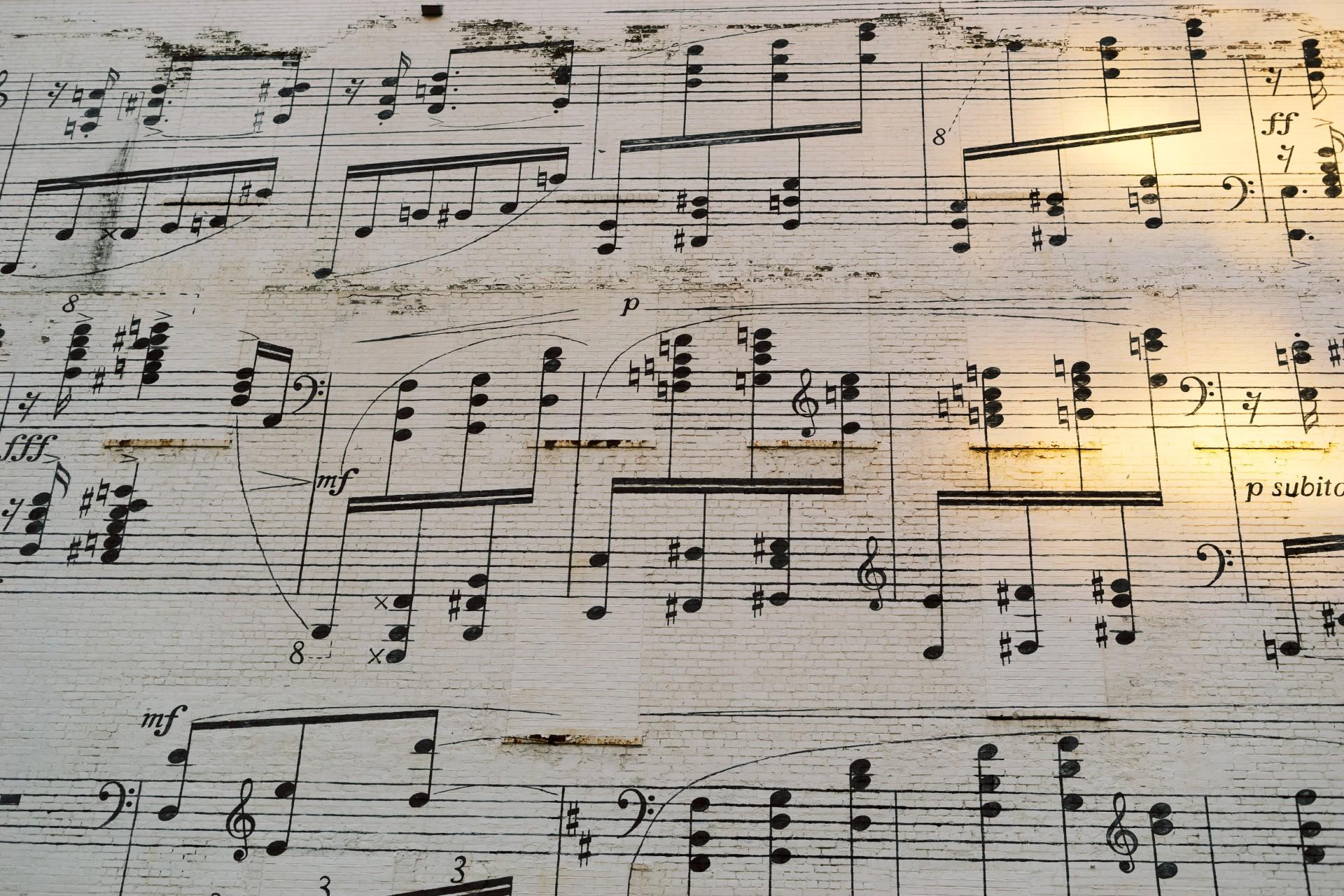
Classical Music
It’s obviously the “noble art” of piano playing, and an almost obligatory passage for all pianists. Classical piano is THE piano style par excellence.
Find out about some of the best piano tutor in Australia here.
A few years ago (even decades back), piano training was based solely on classical music. Today there are still “old-school” piano teachers who teach according to this method. But with today’s passion for anything “vintage,” we’re sure that classical piano is bound to remain an important reference. And who knows, perhaps it'll come back to being central in every piano lesson? Who is your favorite classical musician?
Ragtime
A particular genre in which the piano performed an essential role is ragtime. It was especially popular at the end of the 19th and the beginning of the 20th century, its main feature being its ragged rhythm, which justifies the name of the genre.
It's true that nowadays, not that many people perform or listen to ragtime but it is a crucial genre to know for any musician because it deeply influenced the development of jazz.
Most ragtime compositions at the time were composed and performed on the piano, so if you like the genre, you'll have a great choice of pieces you can use for practice in your free time.
Another reason to be interested in ragtime is that mastering this genre can be a great first step to becoming a jazz musician.
Jazz
Jazz is probably one of the greatest inventions in musical history. It uses interesting harmonies, which aren't accepted in classical compositions, it gives the musician room for improvisation and it can be performed alone, with a band or orchestra.
Of course, jazz is a challenging genre due to its high technicality. If you watch jazz movies or listen to professional musicians, you'll probably be impressed by their speed and think you'll never be able to reach that level.
Nevertheless, you should know that not all jazz is complex and difficult but you can also find slow pieces in that style, which can be a great starting point to build upon.
Jazz is very fun to perform for musicians, so you are unlikely to get bored learning it and it opens up lots of possibilities in other styles since pop, rap, R&B and others are all somehow related to jazz.
So, if one day you get bored playing it, you can always switch to another style and get a breath of fresh air.
20th-century Pop and Variety Music
The advantage to playing variety music is that it is easily adaptable to the piano, as well as most pianists’ levels. Learning the piano in these musical types also allows the student to diversify his or her piano playing skills.
In our day and age, there is so much music coming out every day – especially the case because of downloading platforms on the Internet. All this offers a range of choice for the pianist. With variety music, you can keep the spirit of the original music, all while adding your personal touch, in a way that your playing level will allow.
One more thing to note: pop and variety music authors are known and appreciated throughout the world. Ever heard of Elton John? John and others are universal music references, and rightly so.
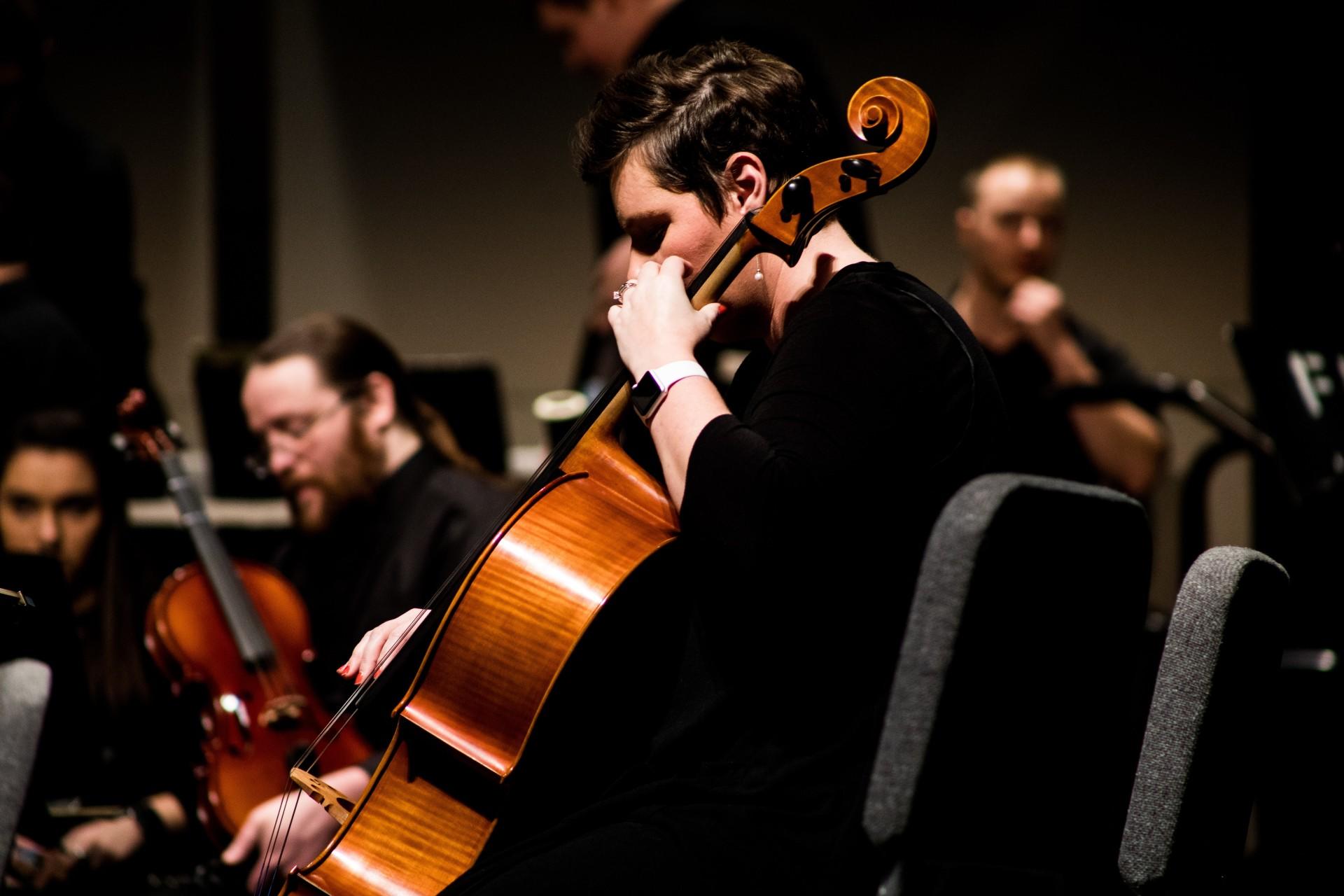
Film and television soundtracks
Throughout the twentieth and twenty-first centuries, this style has become central to many cultures. This makes its composers (such as John Williams, who wrote the soundtrack for Star Wars) true music legends.
Nine times out of ten, music writing and composition of music destined for the movies or television is done on the piano. So for this genre also, the piano is the instrument of reference. What are your favorite film scores?
What music styles are less piano “worthy”
While we are 100% sure that the music genres we mentioned above can be performed on the piano, the following styles are questionable. What do you think: possible or impossible? You might see that the old saying, “where there’s a will there’s a way,” is not always necessarily true!
Rap and R&B: taboo for the piano?
You know the music we’re talking about, the kind you just can’t imagine being performed on the piano. But you have to know one thing. Most rappers and R&B singers are music lovers, with a wide knowledge of music and music culture. They often share and use the same references to create their own original sounds as musicians of other backgrounds.
Also, one common root of rap and R&B is jazz. Jazz piano is almost as established in music conservatories as classical piano is. If you are a fan of improvisation in music, this is the style for you! So, contrary to what you might have thought, the piano is definitely not incompatible to rap and R&B. You can play piano and rap if you like!
Then, you should keep in mind that once you master scores and basic techniques, you can also buy an electronic keyboard and expand your creative horizons.
You'll be able to make more diverse beats and combine them with tunes. In the end, your soundtracks will sound more professional and also become more interesting to listen to.
As a rap artist, it is always good to keep exploring new media and means of expression. You can draw a lot of inspiration from the piano and stay motivated to create new and new songs.
Electro: does it have melody or is it only noise?
When it appeared in the 1970s, electronic music was considered by some to be “anti-music,” practiced by “non-musicians” who were more comfortable on a computer than a real instrument. And yet… Today it’s completely possible to adapt a piece of electronic music to the piano.
You can play songs in electro music on the piano! You should note that a piece of electro music possesses the same musical structure as that of classical. Piano notes are so versatile… Do you know how to read scores?
Learn to read it now to understand the different between the middle C and quarter notes!
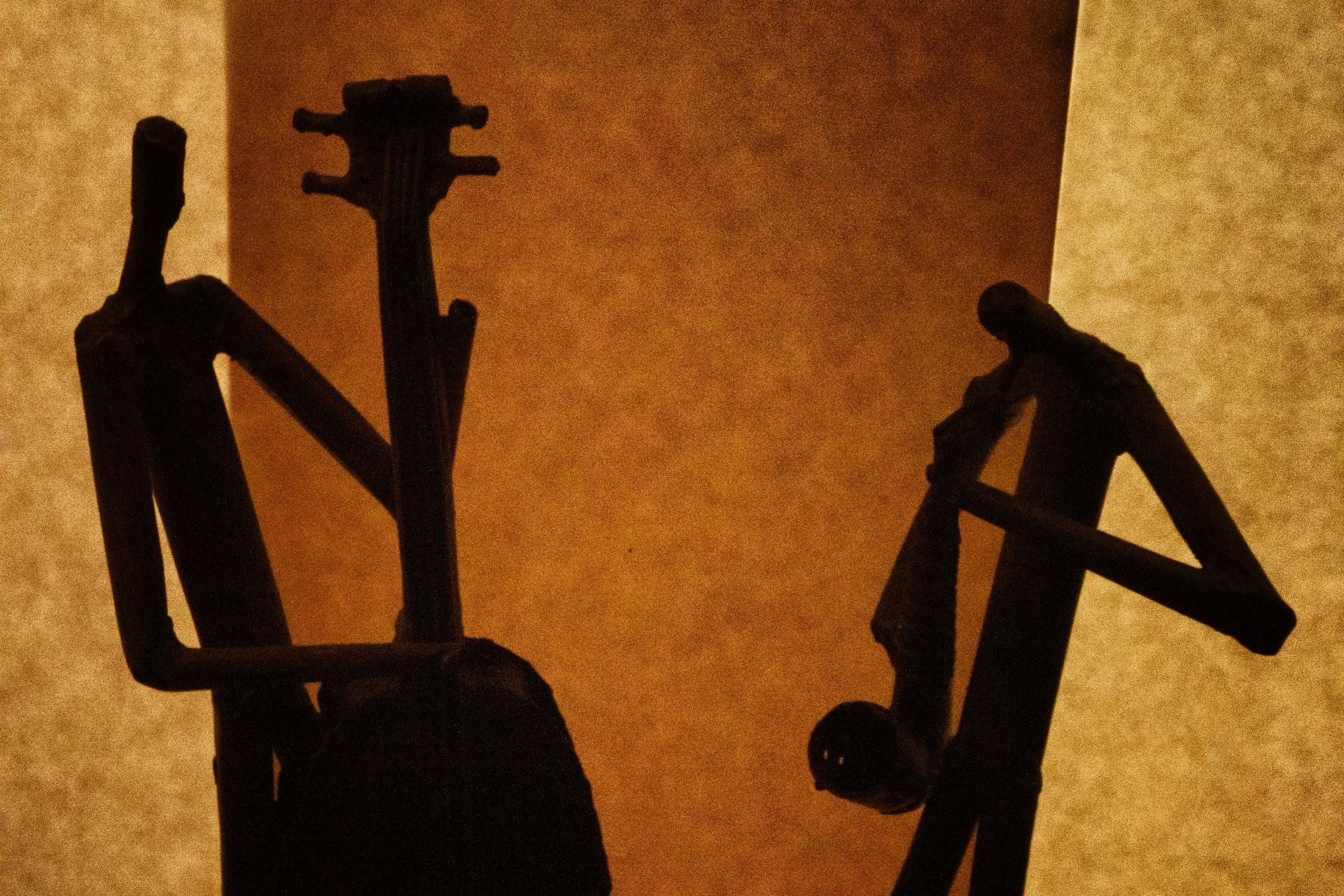
So it is a “piano worthy” music style! In fact, most DJs do compose their music with real or virtual piano keyboards (like David Guetta for one).
Marginal music styles: are they the exception for pianos?
There are musical styles that are not adaptable to piano playing. And with reason! These compositions are more about noise, and that incessant “boom-boom,” than music. And “boom-boom” on the piano just doesn’t function as you may want it to…
We’re talking about genres like hard-tech, trans, and minimal techno, among others. These are very difficult for pianists to adapt piano music or a scale to (in contrast to house music).
Even with all the determination and desire in the world, solid piano training and advanced knowledge of sight reading, major scales, piano pieces, and whatever else you can do, it is simply impossible.
Creating your own style
Finally, having such a powerful instrument as the piano at your disposal opens up the ultimate opportunity to develop your own music style.
It can be a combination of existing approaches or you can even try and come up with something totally new.
However, doing so requires wide general knowledge about music, a lot of creativity and inspiration. Practising the piano can be a great way to gather those conditions.
Step by step, you'll be able to build up a unique and recognisable sound to become a genuinely original artist. A lot of fun and pleasure is awaiting you!
So can you play everything on the piano?
As with every good experiment, there is an exception that confirms the rule! So to the question, “can one start to play all styles on the piano,” the answer is no. But we really had to look hard to find styles that are almost impossible to play on the keys.
We can confidently say that musicians can explore 90% or even 95% of the global musical universe on the piano. And as we were researching, we realized that the piano is a hugely rich instrument to get to playing.
There are so many benefits for learning how to play the piano. Jazz piano, classical piano, variety, rock, tango… different styles affect the content of one’s piano instruction. And no matter the music genre or level, you’ll need to practice playing your piano in order to become more advanced.
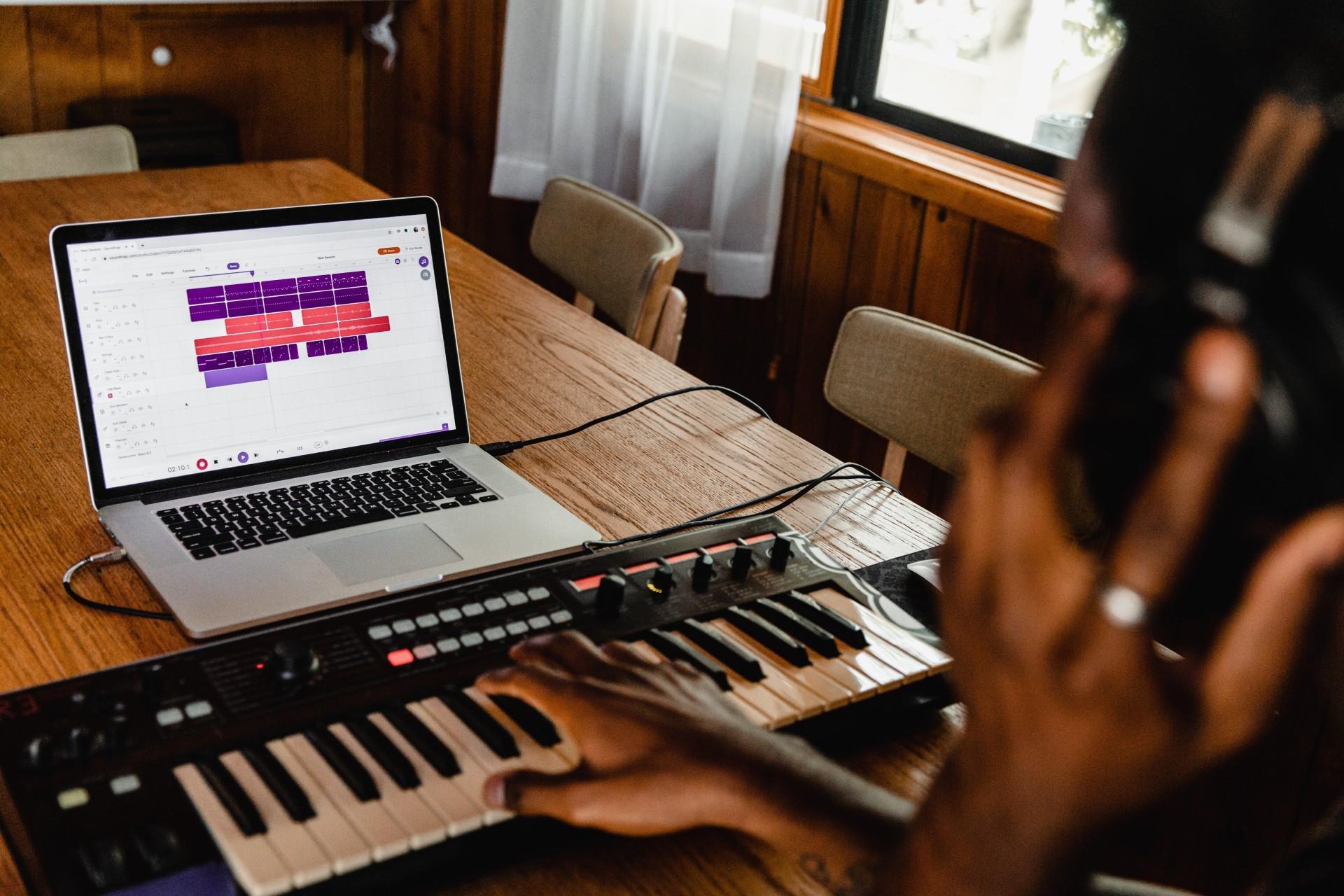
It’s better to practise intensely for 30 minutes at your keyboard rather than one hour without concentrating. And to achieve optimal concentration, organize practice sessions of at least 30 minutes.
This is the minimum to have you’ll need to soak up what you are working on, whether it’s an octave, arpeggio, chord progression or a concerto! From private lessons to the conservatory, piano lessons online to piano training in a music school, the choice for education is vast.
This is especially true in today’s digital age, where it’s easy to find tutorials and free online classes to start to play the piano. We at Superprof think it’s a fantastic idea to enroll in beginner piano lessons to play correctly.
The piano teacher is also there to answer students’ questions, about doubts, lack of motivation, or anything! He or she should be teaching all aspects of piano playing, including:
- Posture improvement to learn proper posture
- Solfège training, how to read piano scores
- Practicing songs on a piano keys
- Piano scales, chord progressions, octaves and arpeggios
- Reading music and music theory
Soon you’ll figure out what to do with your left hand on those piano keys. After your piano lesson, you’ll be able to achieve your music dreams, whether you want to play like Mozart or Little Richard!
Summarise with AI:

